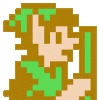I will still stick to directx.Some advice by example of personal experience.
When I switched from DirectX 7 to SFML, I was looking for a way to make use of hardware acceleration so that painting sprites to the screen wouldn't be so slow. I investigated SFML, SDL, and DirectX 9 each as candidates for what I thought I would need. That investigation consisted of installing each API and writing small test programs to see what I'd be potentially getting myself into. In the end, I decided SFML best met my needs between performance and ease of use.
Another project I worked on I decided to go with using C# for a few reasons. One was simply to get some experience using C#. Another was that the component that I wanted to use (a web control) seemed like it'd be easier to work with using C#. Specifically, I knew that I'd need to do work using delegates and I've had a sliver of experience with those in C# as opposed to none with C++. I didn't "switch" to C#, I choose to use it because it suited the project and my needs.
In my current project, I am looking at reworking the code that handles the logic involved with 2D animations. My understanding is that GameMaker would have all that logic established for me such that I'd only have to worry about providing the graphical assets. Likewise, it's possible that there's an engine out there where all it would take is setting up one classes and calling a few methods to do what I need. Maybe it would be easier. Maybe there would be a lot more stuff that I'd have to learn to use first. I don't know because I've never looked into using an engine before.
It does enter my mind from time to time to look into using one of the engines that are out there. But the question isn't "Should I switch?" The questions ares, "What does this engine have to offer me?" and "Do I have the prerequisite understanding of things to be able to make use of the engine?" I can look for answers from other people about what an engine has to offer and how it can make programming easier. But only I can answer the second question.
You obviously like 2d more than i do because before this thread i didn't doing 2d (i don't have a problem with it, i just prefer 3d games)










